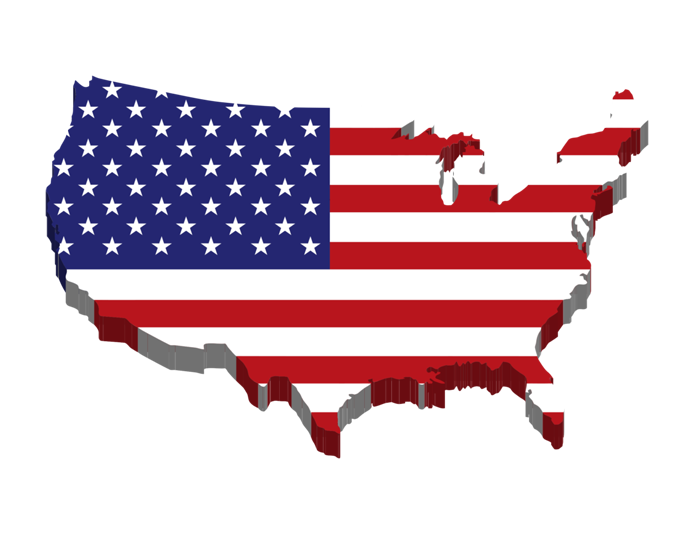Nearly half of the private sector workers in the United States work for small enterprises, which also account for two out of every three new job creations.
If you run a small business, getting a business loan can help you launch or expand your enterprise, buy crucial equipment, or cover working capital requirements.
Knowing how business loans operate will help you discover the best loan for your company, which, when applied successfully, can be a lifesaver.
What Is a Business Loan?
A small business loan is a type of commercial financing qualified businesses can get from traditional banks, online lenders and credit unions. Businesses can use funds to cover the costs that come with operating and growing a business, including everything from working capital and equipment purchases to larger purchases like real estate.
How Do Business Loans Work?
Business loans offer financing to business owners in the form of a lump sum or credit line. Your company promises to repay the money it borrows over time, together with interest and fees, in exchange for this funding. Until the loan is entirely returned, your lender may need daily, weekly, or monthly payments depending on the type of business loan.
Loans for businesses can either be secured or unsecured. Secured loans demand collateral, such as real estate, equipment, cash, or assets, which the lender can seize if you default on the loan. Conversely, collateral is not necessary for unsecured loans. Instead, you usually need to sign a personal guarantee committing yourself to accepting responsibility if the company fails to pay its obligation as agreed.
What Are Business Loans Used For?
Business loans can be used for a variety of things. However, you will typically need to disclose your intended purpose for the money when you apply for credit.
Typical uses comprise:
- Startup costs
- Commercial real estate purchases and/or remodeling
- Cashflow for everyday expenses
- Debt consolidation or refinancing
- Equipment purchases
- Inventory purchases
- Business acquisitions
- Business expansion
- Business franchising
- Marketing and advertising
You may have noticed that the list above left out one important category of purchase: personal spending. Generally speaking, lenders won’t let you apply company loans to pay for personal expenses like buying a house, a car, or other activities that are irrelevant to business needs.
Types of Business Loans
If you need cash for your business, you might want to have a look at the seven types of business loans listed below. Finding the best alternative may be made easier by using a business loan broker.
SBA Loan
A type of financing known as an SBA loan is supported by the U.S. Small Business Administration (SBA), which insures a percentage of the funds that companies borrow through these credit facilities. The lender may be ready to give money to companies that it might not have otherwise approved for funding because the risk is reduced as a result.
The interest rates on SBA loans can be competitive for well-qualified borrowers. What’s more, SBA loans typically range from $30,000 to $5 million and come with extended repayment terms—up to 25 years.
SBA loans, however, also have infamously onerous eligibility restrictions. Expect to go through a lot of hoops and wait a few months to find out if you’re eligible.
For these kinds of loans, a personal credit score of at least 680 is advised.
Term Loan
Another popular form of business financing that is repaid over a predetermined time period is business term loans. A traditional bank or an online lender can let you borrow money for your company on a term loan. Because online lenders often offer more lenient qualification conditions, newer enterprises typically have a greater chance of approval.
Typically, these loans have periods of up to 10 years, a maximum loan amount of about $500,000, and annual percentage rates (APRs) that begin at about 9%.
Which loan conditions you can obtain normally depends on your business’s history, annual revenue, and creditworthiness, including your own.
Working Capital Loan
Working capital loans are a type of short-term financing that can assist companies who require a cash infusion to support ongoing running costs like payroll. These loans are often in the form of a term loan, line of credit, or invoice factoring. Particularly seasonal enterprises may profit from a working capital loan during lean times when controlling cash flow is difficult.
Depending on the precise form of financing you seek for and the risk you represent as a borrower, the terms of your working capital loan may change.
However, the typical range for working capital loans is $2,000 to $5 million. As a general rule, loans with fewer qualification requirements typically have higher interest rates and fees to balance the lender’s risk.
Business Line of Credit
When you don’t know how much money you’ll need up front, a business line of credit gives a flexible option to acquire it. This is due to the fact that, like with a credit card, borrowers can use a credit line ranging from $2,000 to $250,000 as needed. You can also reuse your credit limit as you return it over the course of the draw period, and you will only be charged interest on the amount you actually borrow rather than the total permitted maximum.
A business line of credit’s draw period eventually ends, usually within 12 to 24 months, unlike business credit cards. The repayment period will start once the draw time is up, and you will be required to pay back any remaining balances together with interest. The time frame for repayment can be anywhere between six months and five years. You won’t be able to borrow money during this time using your credit limit.
Merchant Cash Advance
When your company needs money quickly, a merchant cash advance (MCA) may be a simple method to get access to short-term funding. In exchange for a one-time payment of cash, business owners provide the lender—often a merchant services firm—a percentage of future sales receipts. This sum plus fees is reimbursed daily or once a week by automatic clearing house (ACH) payments or from the company’s individual sales.
The faster loan application procedure and laxer qualification standards, though, can be pricey. Factor rates for MCAs typically range from 1.2 to 1.5. For instance, if the factor rate is 1.2 and the MCA amount is $10,000, the total payback will be $12,000.
Invoice Factoring
Businesses that bill other businesses using an invoicing system can be qualified for invoice factoring. This kind of business finance is selling your company’s unpaid invoices to a factoring company. The factoring company will then take over the task of collecting the unpaid invoices and advance you a portion of them (typically between 70% and 95%). The factoring company pays your company the leftover balance after collection, less the factoring fees. For each month an invoice is delinquent, factor costs normally range from 0.50% to 5%.
Equipment Financing
Your company may benefit from equipment financing if it has to purchase anything from modest electronics to massive manufacturing machinery. The cost of the equipment being financed determines the loan amounts. While lenders frequently finance between 80% and 100% of the equipment expenses, they also frequently demand a down payment of roughly 15%. Three to ten years’ worth of time is available.
Business Loan Requirements
Depending on your particular lender and how you intend to use the funds, business loan requirements may change. The qualifications a lender could impose prior to approving a fresh application for funding depend on the sort of loan you’re applying for. Generally speaking, you might anticipate the following requirements:
- Minimum credit score.: A lender often looks at both your personal and company credit ratings. The minimal score needed depends on the type of loan.
For instance, you need a minimum score of 680 to be eligible for an SBA loan or a conventional bank loan, and a minimum score of 630 to be eligible for equipment financing or business lines of credit. Additionally, solid business credit is advised. - Annual revenue.: Before you can get funding, some lenders may require that you have a certain amount of yearly business revenue. This demonstrates that your company can afford to make future debt payments.
- Time in business.: Longer-running companies are more likely to get their loan requests approved. Lenders generally demand that a company has been in operation for at least one to two years. Businesses that have been operating for at least six months are eligible for several types of financing.
- Debt ratio.: Your debt-to-income ratio (DTI) and debt-service coverage ratio may also be examined by lenders (DSCR). Your DSCR compares your business’ annual net operational revenue to its total debt, whereas your DTI compares your monthly personal debt to your gross income.
- Collateral.: Secured loans require you to put up collateral, such as accounts receivable or real estate, that the lender can take possession of if you are unable to pay back the loan.
- Personal guarantee.: A personal guarantee is required by some lenders and loan types to protect the lender in the event of a default. In the event that your company breaches the terms of the loan, the lender will demand that you use your own resources to pay back the debt.


You might wish to check through frequent issues that might hinder you from acquiring a small business loan in addition to looking at requirements for business loans.
Understanding the procedures you must follow to qualify for a business loan can sometimes be just as important as knowing what not to do beforehand.





